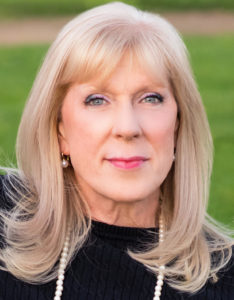Every day, agents, police, and prosecutors across America are fighting to protect our communities, safeguard U.S. national security and financial markets, and stem the flow of dirty money into the United States. Even so, current safeguards against money laundering still allow a tidal wave of illicit cash into the United States.
I should know. I led many of these types of investigations for 20 years.
Congress now has an opportunity — an obligation, I would argue — to provide American law enforcement with updated investigative tools to shore up our defenses against terrorists, drug cartels, human trafficking operations, transnational criminal enterprises, and some of America’s most dangerous adversaries from Iran to Russia.
The ENABLERS Act — short for Establishing New Authorities for Businesses Laundering and Enabling Risks to National Security — is a long-overdue bipartisan package of much-needed reforms. It is also a commonsense idea with enormous potential to help law enforcement officials follow the money. The bill would, for the first time, empower the U.S. Treasury to require the lawyers, accountants, and others who provide corporate and financial services who move — and, in certain cases, hide — money in the United States to know with whom they are doing business.
It may come as a surprise to many that criminals and others can establish anonymously owned companies in this country. Nearly every week, we read exposés in the news about corrupt foreign officials and oligarchs stashing billions of dollars in ill-gotten wealth in the US. The lawyers, accountants, and other professionals who help set up these secret structures are not currently required to ask even the most rudimentary questions to find out if they are assisting a drug kingpin or a deadly foreign adversary. Making matters worse, when investigators or agents try to trace dirty money back to a criminal actor or network, they inevitably run into a dead-end. The professionals who ‘enabled’ the money laundering scheme are of little help because they never even asked about the source of the funds.
While I was investigating corruption in Ukraine, I identified a US-registered corporation used in a $60 million Ukrainian fraud scheme. I contacted the US-registered agent and asked who had hired him to register the Oregon-registered company. He was contacted by a service provider in Belarus to incorporate the company. When I asked how many companies he had incorporated for the Belarus service provider, he replied “1,956”. We have no idea how these US-registered companies were used or the role they played in corrupt schemes.
The result is that dirty money is flooding into the country. Research conducted by Global Financial Integrity found at least over $2.3 billion has been laundered through real estate in just the past five years. Additional money is laundered through a wide variety of other investments as well. Together, all this secret dirty money is financing significant criminal activity including the opioid crisis and human trafficking, among other illicit activities.
The challenge in detecting these examples of money laundering comes from how the act has changed since U.S. laws were last updated. While traditional financial institutions like banks are obligated to monitor and report suspicious transactions, an outcome of that obligation is that the flow of dirty money has shifted into other, less-watched areas like private equity.
A newly published report by The Sentry reveals just how expertly cartels and other malign actors are utilizing these loopholes to harm our communities. The crisis is real, and urgent – a recent Transparency International report details for example how a private equity firm, Sefira Capital LLC, laundered over $100 million worth of drug proceeds into real estate projects throughout the US. Sefira never asked about the true owners of businesses they worked with, and no current law requires them to do so.
As the sophistication of money laundering operations has increased, so has the list of individuals who should be required to report suspicious activity. Today’s financial middlemen include not just bankers, but those who provide investment advice, manage money or form or register companies or trusts for questionable clients. Many of the corrupt foreign leaders I investigated used these middlemen to facilitate the movement of their illicit funds. US-incorporated companies were used to add an air of legitimacy to foreign corruption schemes.
The ENABLERS Act responds to this problem by empowering the Treasury Department to require these and other gatekeepers to the U.S. financial system to adopt anti-money laundering checks. If these gatekeepers to the financial system report who owns these shell companies or submit Suspicious Activity Reports to Treasury, law enforcement officials will be armed with valuable new information about potential criminal activity.
Like physical masks to hide their faces, criminals use anonymous structures and anonymous investments as masks to hide their money laundering schemes. Lawyers, accountants, and other service providers can enable these illicit transactions with impunity. That has to stop.
By passing the ENABLERS Act, Congress can modernize investigations, create new pools of critical information and provide agents, officers, and prosecutors with the tools they need to hold accountable the criminal networks and the professional enablers that assist them. It’s a game changer for America’s frontline of defense against its greatest criminal and security threats.
_____________________________________________________________________________________________________________

Debra LaPrevotte is a Senior Investigator with The Sentry and a former Supervisory Special Agent on the International Corruption Unit at the FBI.






